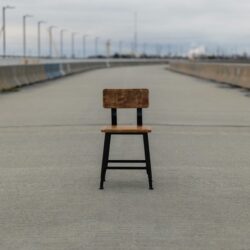Remembering Ken Robinson, Apostle of Creativity in Education

Ken Robinson, the revered and prolific evangelist for connecting education with the arts, died August 21 of cancer. He was 70. As Social Science Space prepares a full obituary, we repost an account of Robinson’s appearance to help mark the start of SAGE Publishing’s 50th year in 2015; SAGE is the parent of Social Science Space.
At the February 12 kick-off event in the U.S. celebrating SAGE’s 50th year, one of the most creative minds in the field of creativity in education addressed an invited audience of educators, innovators and philanthropists in Santa Barbara, California. And the message of Sir Ken Robinson, “Out of Our Minds: Learning to be Creative” was as direct as it was sincere (and humorous): “Creativity is not optional” in education. Science and numeracy are important drivers of the economy and of national success and are “terribly important — but that’s not all there is.”
The Englishman living in Los Angeles noted that there was an app for his iPhone that allowed the user to play the blues harmonica. Surely, he joked with a broad grin, that must have been one of the primary motivations in designing smartphones, then added, that it’s impossible to predict human behavior the same way that we can molecules and tides. “We won’t be able to predict the future,” he said, but by embracing creativity, “it will be one we want to have our children live in.” (He added that many of the challenges humankind faces are ultimately products of our own creativity.)
Robinson rocketed to global fame in 2006 with a TED talk on how schools kill creativity. That talk, currently at 31 million views [66 million at the time of his death], is the most viewed video on the TED.com site, making Robinson, as the site itself creatively notes, “the sneezing baby panda of the TED ecosystem.”
But like SAGE itself, Robinson has been studying education – and extolling the virtues of creativity—for a long time, starting, he said, at age 18 (when SAGE was itself three years old). And in those years Robinson, who studied English and then drama in his own university student career and then taught education at University of Warwick and other places, developed his own ideas about what works in education.
Ideas, not theories. “They’re not theories, they’re actually what works (but you can theorize about it),” Robinson explained about his project-based curriculum and other ideas fleshed out in many of his books, such as his 2005 classic, Out of Our Minds: Learning to be Creative, 2009’s New York Times bestseller The Element: How Finding Your Passion Changes Everything and his latest, Finding Your Element: How to Discover Your Talents and Passions and Transform Your Life. (A completely revised 10th anniversary edition of Out of Our Minds is coming out this year.)
Given that a simple prescription doesn’t require multiple books to explain, he added, “But it only works if you know what you’re doing.” Meanwhile, he continued, “A test-based mania — that’s killing education around the world. That’s what doesn’t work! … [Building a creative curriculum] is what they call ‘alternative education.’ If they did this all the time we wouldn’t need alternative education.”
We do need, he said, an alternative to what we now call education, especially in the United States and United Kingdom.
He described taking a date to an abattoir years ago and marveled at how well it worked – not one cow escaped. (He also riffed on the odd job of being the plant veterinarian …) “If you design a system to do certain things, don’t be surprised if it does them,” Robinson said, then compared that most current standardized public education systems and how many students there ‘escape.’ “I dislike the term ‘dropout,’” he noted. “It implies they have failed the system when in fact the system has failed them.”
How do we solve those problems? he asked. “Stop causing them.” Efforts to address the problems with regimentation and standardization have not and will not work, he insisted: No Child Left Behind, the signature piece of education reform enacted by the U.S. government, “is one of the most ironic titles ever.” Part of the problem with approaches like No Child is that they emphasize outputs like test scores as a good in and of themselves. Robinson compared that approach to factory farming, then approvingly described organic farming, “where we make the soil richer and the plants will take care of themselves.”
It’s not a failure to appreciate education that drives dismal outcomes. Since the publication of the A Nation At Risk report more than 30 years ago, Robinson said, “education has become a strategic issue. It obsesses governments around the world as a matter of national pride and, it’s thought, national survival.” He’s been a dab hand himself at ringing clarions for government: In the UK he led a national commission of creativity, education and the effect on the economy that produced the influential All Our Futures: Creativity, Culture and Education, dubbed “the Robinson report.”
In turn, he suggested there must be a touch of creativity in SAGE itself. “It’s a remarkable achievement to make this anniversary in such turbulent times.”




























































































